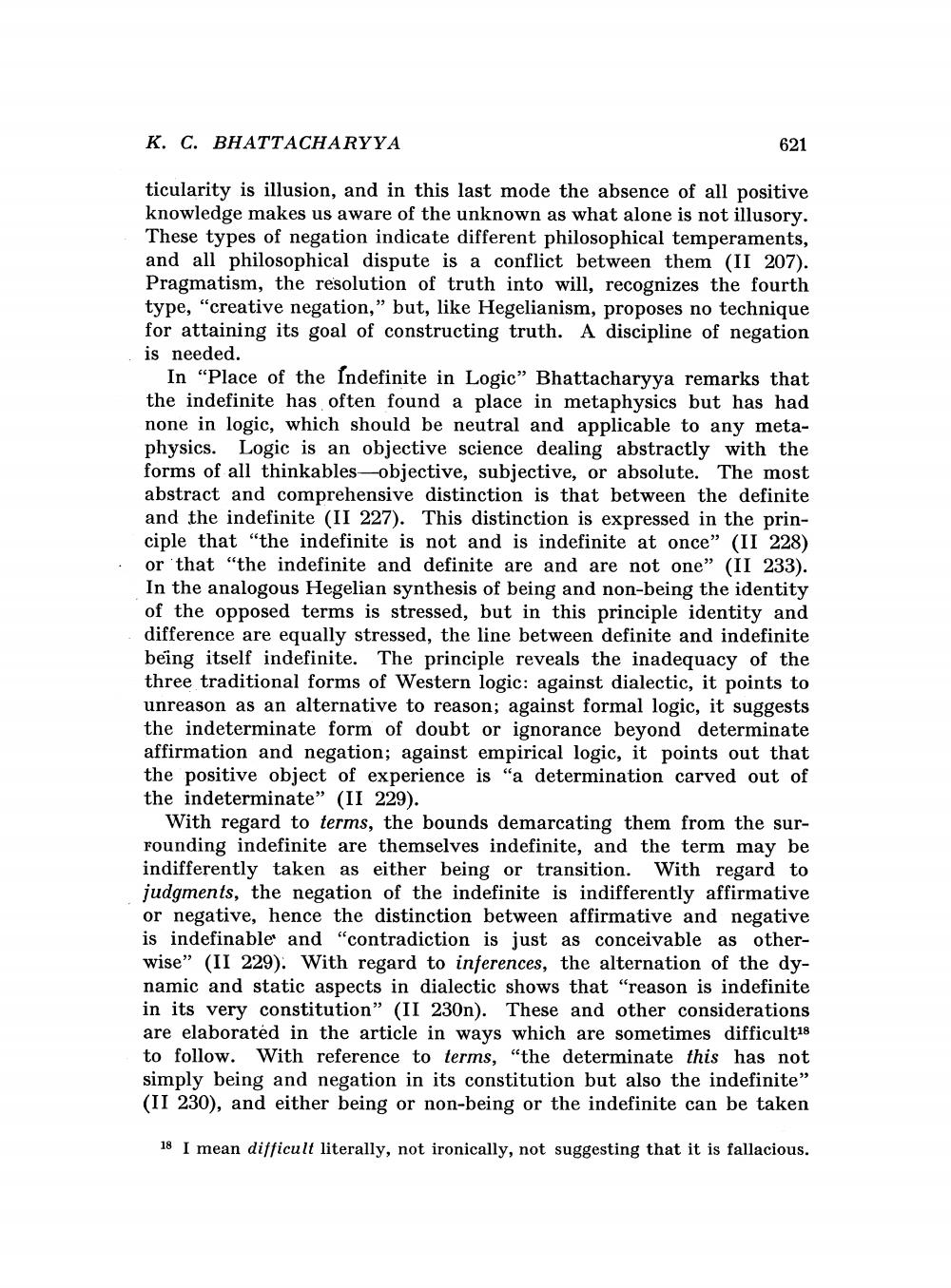________________
K. C. BHATTACHARYYA
621
ticularity is illusion, and in this last mode the absence of all positive knowledge makes us aware of the unknown as what alone is not illusory. These types of negation indicate different philosophical temperaments, and all philosophical dispute is a conflict between them (II 207). Pragmatism, the resolution of truth into will, recognizes the fourth type, "creative negation," but, like Hegelianism, proposes no technique for attaining its goal of constructing truth. A discipline of negation is needed.
In "Place of the Indefinite in Logic” Bhattacharyya remarks that the indefinite has often found a place in metaphysics but has had none in logic, which should be neutral and applicable to any metaphysics. Logic is an objective science dealing abstractly with the forms of all thinkables-objective, subjective, or absolute. The most abstract and comprehensive distinction is that between the definite and the indefinite (II 227). This distinction is expressed in the principle that "the indefinite is not and is indefinite at once" (II 228) or that "the indefinite and definite are and are not one" (II 233). In the analogous Hegelian synthesis of being and non-being the identity of the opposed terms is stressed, but in this principle identity and difference are equally stressed, the line between definite and indefinite being itself indefinite. The principle reveals the inadequacy of the three traditional forms of Western logic: against dialectic, it points to unreason as an alternative to reason; against formal logic, it suggests the indeterminate form of doubt or ignorance beyond determinate affirmation and negation; against empirical logic, it points out that the positive object of experience is "a determination carved out of the indeterminate" (II 229).
With regard to terms, the bounds demarcating them from the surrounding indefinite are themselves indefinite, and the term may be indifferently taken as either being or transition. With regard to judgments, the negation of the indefinite is indifferently affirmative or negative, hence the distinction between affirmative and negative is indefinable and "contradiction is just as conceivable as otherwise” (II 229). With regard to inferences, the alternation of the dynamic and static aspects in dialectic shows that "reason is indefinite in its very constitution” (II 230n). These and other considerations are elaborated in the article in ways which are sometimes difficult18 to follow. With reference to terms, "the determinate this has not simply being and negation in its constitution but also the indefinite" (II 230), and either being or non-being or the indefinite can be taken
18 I mean difficult literally, not ironically, not suggesting that it is fallacious.




